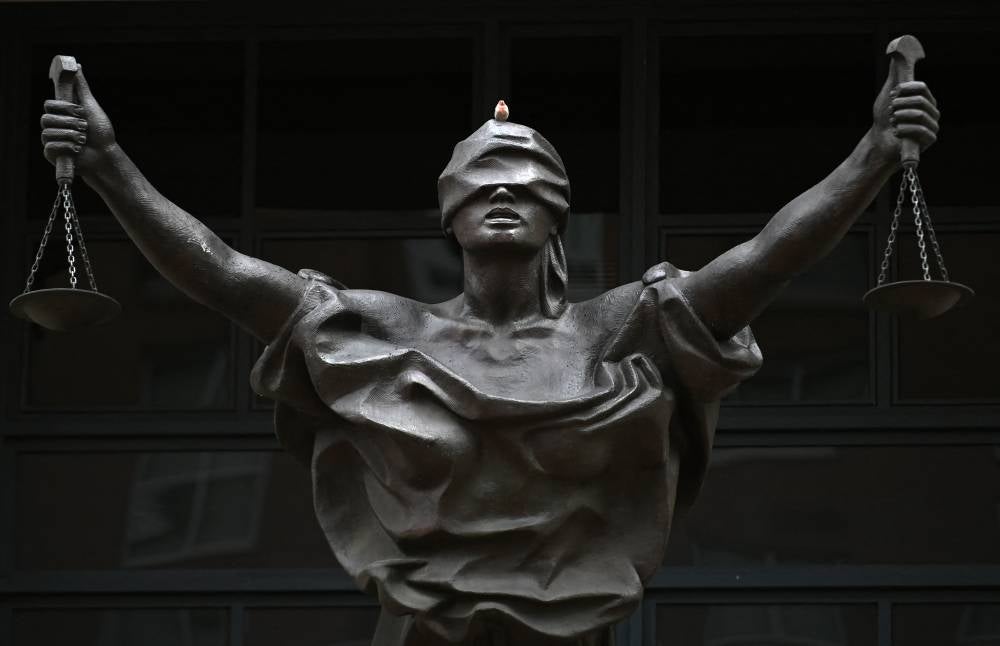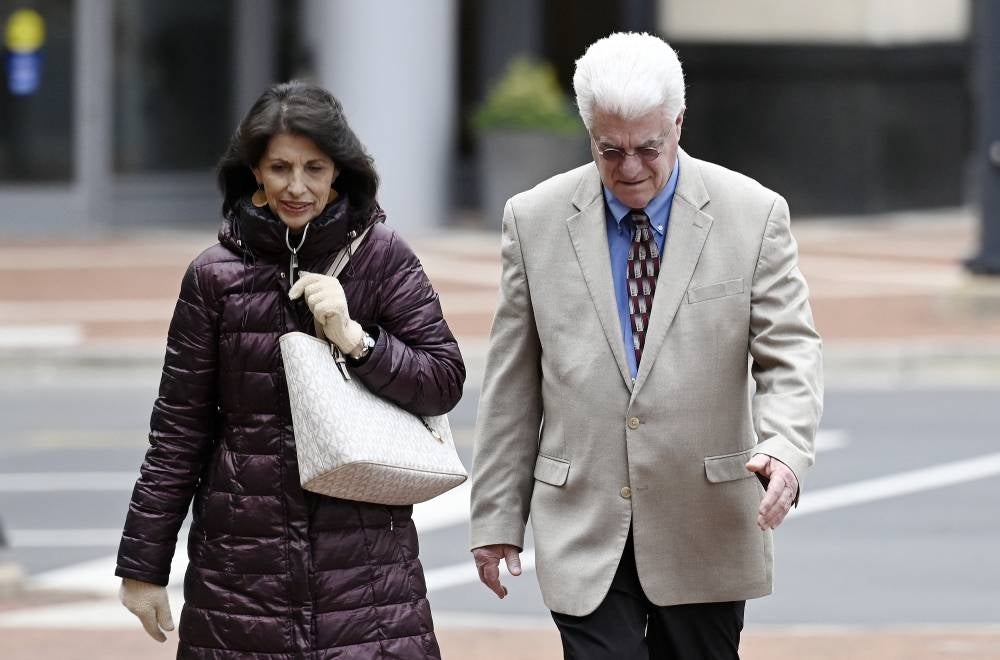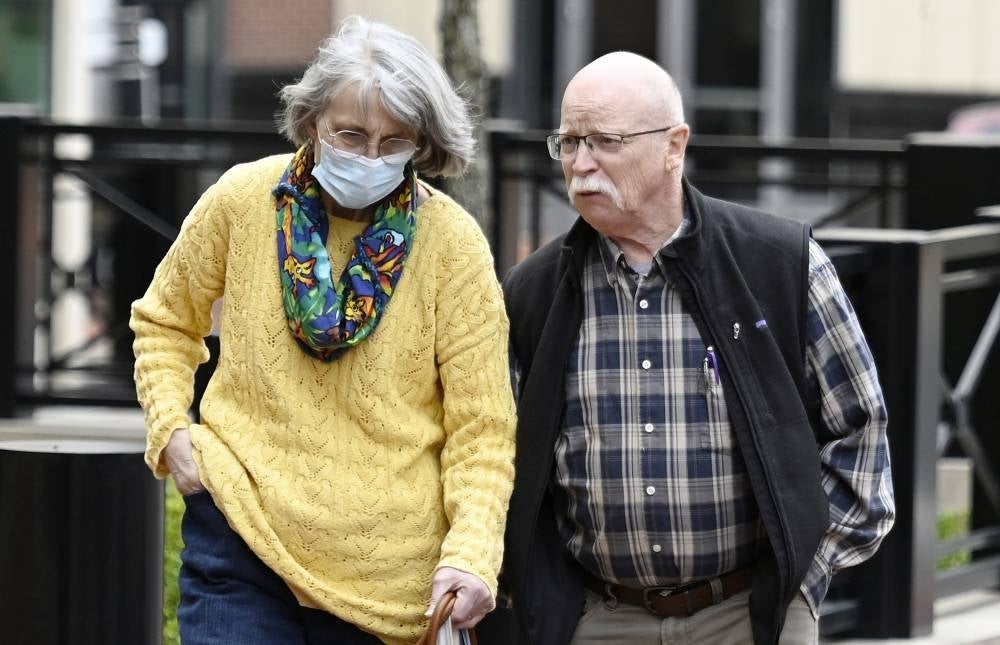Italian aid worker recalls brutal treatment by IS 'Beatles'

ALEXANDRIA, UNITED STATES - An Italian aid worker described being beaten with a rubber cable and waterboarded in harrowing testimony Thursday at the trial of a jihadist accused of being one of his Islamic State captors known as the "Beatles."
Federico Motka is the first former IS hostage to testify at the trial of El Shafee Elsheikh, a former British national accused of the murders of American journalists James Foley and Steven Sotloff and aid workers Peter Kassig and Kayla Mueller.
Elsheikh, the most high-profile IS member to face justice in the United States, is charged with hostage-taking, conspiracy to murder US citizens and supporting a foreign terrorist organization.
Motka, who was seized by IS in Syria in March 2013 along with British aid worker David Haines and held for 14 months, longer than any other hostage, said their treatment was initially not too brutal.
"We had to kneel down with our face towards the wall and never look them in the face," he said of his captors. "Whenever they came in there was a punch here and there, intimidation, kicking."
It got significantly worse after he was caught talking to a Syrian prisoner in a neighboring cell, he said.
"I was beaten that night with a thick rubber cable for one hour," Motka said. "That's when the regime of punishment started.
"They played a lot of games with us. They gave us dog names."

Motka said his captors decided to waterboard them, first with a bucket and later with a wet sweater pressed against their face.
"Ringo pushed it on my face," he said, using one of the "Beatles" names which the hostages gave their captors because of their British accents. George put water in the jumper with a hose.
"It became impossible to breathe as the jumper absorbed water," he said. "I started to panic. It was by far the worst of all that had happened until then."
- 'Blue from the beatings' -
Motka said they were given electric shocks to their hands and feet with something like a stun gun by a guard they nicknamed the "Punisher."
They were made to stay in "stress positions" for hours.
He said they were rarely allowed to clean themselves but he saw Haines' body one day during a shower and it was "all blue from the beatings."
Motka was released by IS in May 2014 while Haines was murdered in September of that year.
Motka said for part of his captivity, Foley, a freelance journalist, and John Cantlie, a British journalist taken hostage along with Foley, were in a nearby cell.
"We heard them and their screams," he said.
At one point, all four hostages were placed in the same room and ordered to fight each other, what their captors called a "royal rumble," he said.
"We were so weak and shattered that we hardly had the strength to lift our arms."
Motka said the captor known as "George" spoke frequently about trying to recreate conditions for the hostages similar to those at the US military prison at Guantanamo.
"George was into boxing. John kicked a lot. Ringo talked a lot about how he liked wrestling, putting people in headlocks," he said.

Motka described being held at various times with other European hostages and the Americans Sotloff, Mueller and Kassig.
He said some of the male hostages managed to communicate with Mueller by exchanging notes through the bathroom. "She was like us, dealing with it," Motka said. "It was a survival game in a way."
- Executions -
He said the hostages were forced to look at pictures on a laptop of the body of a murdered Russian captive, Sergey Gorbunov, and to witness the execution of a Syrian prisoner.
He said the "Beatle" known as "Jihadi John" -- Mohamed Emwazi -- shot the Syrian hostage.
Emwazi was killed by a US drone strike in Syria in November 2015.
Elsheikh and another former British national, Alexanda Amon Kotey, 38, were captured in January 2018 by a Kurdish militia in Syria while attempting to flee to Turkey.
They were turned over to US forces in Iraq and flown to the United States in October 2020.
Kotey pleaded guilty in September 2021 and is facing life in prison. Under his plea agreement, Kotey will serve 15 years in jail in the United States and then be extradited to Britain to face further charges.
The fourth "Beatle," Aine Davis, is imprisoned in Turkey after being convicted on terrorism charges.
Motka is expected to return to the witness stand on Friday. The trial is expected to last three weeks. - AFP










